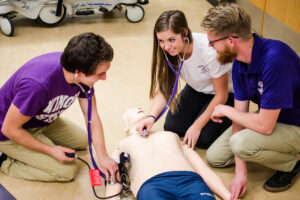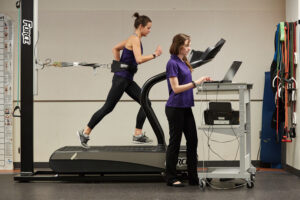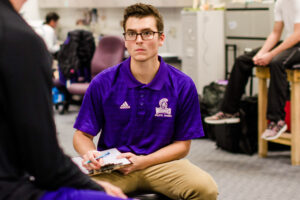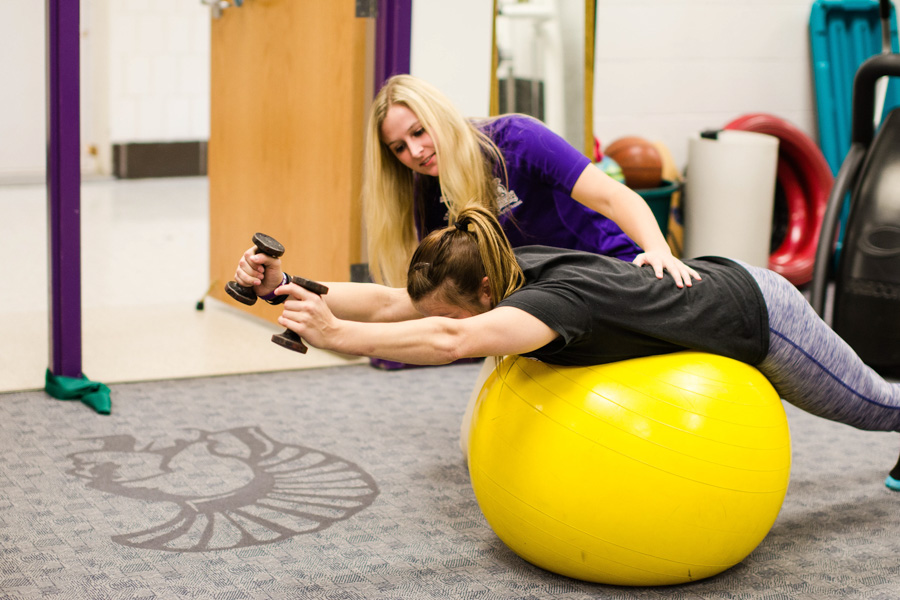
Exercise Science
Bachelor's, Transfer Pathway
PROGRAM SNAPSHOT
Customize exercise programs for different types of clients. Help people understand their health risks. Teach and correct exercise technique.
According to the Centers for Disease Control & Prevention (CDC), more than 30 million adults in the U.S. smoke cigarettes. The CDC also reports that one in 5 children and one in 3 adults struggle with obesity. And the National Safety Council claims sports- and equipment-related injuries send more than 3.2 million people to emergency departments annually.
The Exercise Science major at Winona State teaches future wellness professionals how to create personalized exercise programs with the right amount of strength, flexibility, and cardiorespiratory demands for clients of all backgrounds and health conditions.
With this degree, you can make a difference helping individuals in clinical and corporate settings alike. Help patients recover from traumatic brain injuries (TBIs) or spinal cord injuries. Or guide clients to achieve their wellness goals, like quitting smoking and managing their weight.
This program features several opportunities, most notably that our students achieve 720 hours of hands-on field experience from a variety of settings.
This program is offered through WSU’s Department of Health, Exercise & Rehabilitative Sciences (HERS).
available annually for Exercise Science students through the WSU Foundation.
As an Exercise Science major, you’ll learn how to assess and develop exercise programs for people of varying ages and abilities.
You’ll also:
- know best practices for teaching group fitness classes
- create a micro- and macrocycles for exercise programs
- analyze sport movements from a biomechanical perspective
- practice nutrition counseling and learn how to read nutrition labels
- enhance your skills in measuring body composition, blood pressure, heart rate, vertical jump, and more
Your coursework will prepare you for careers in hospitals, fitness centers, corporate facilities, universities, and community centers.
Aside from major- or minor-specific requirements, you’ll need to complete additional requirements through the General Education Program (GEP) to earn your degree from Winona State University.
Learn More about the GEP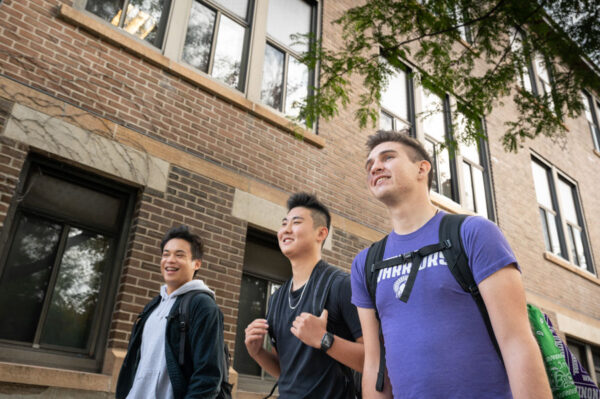
In the Classroom
Be one step closer to becoming an exercise science professional by getting the real-world preparation you need along with your degree.
This major’s curriculum prepares you to sit for the Exercise Physiologist, Group Exercise Instructor, and Personal Trainer certification exams through the American College of Sports Medicine (ACSM).
Create personalized workout plans for WSU students and employees through the Health Coaching program and be certified by the American Council of Exercise (ACE).
And with the Mental Health First Aid certification through the National Alliance on Mental Illness (NAMI), you can recognize early signs or symptoms that someone with a mental health challenge may have and to refer them to the right support services.
In this program, you’ll practice your skills using equipment in 3 on-campus lab spaces in Maxwell Hall that are stocked with bikes, calipers, blood pressure cuffs, stethoscopes, and cutting-edge technology.
And in the Integrated Wellness Complex (IWC), you’ll learn exercise techniques year-round.
These learning spaces are also open outside of your regular lab schedule. You won’t just look at the equipment—you’ll be confident in using it too.
Beyond Campus
As an Exercise Science major, you’ll complete a 600-hour hands-on internship before you graduate.
Students in this program have interned as wellness coordinators, exercise trainers, and rehabilitation technicians for Hewlett Packard, Mayo Clinic, the YMCA, and more.
This intensive field experience will give you supervised practice with a variety of populations, techniques, and abilities.
In addition to your internship, you’ll also complete 120 practical hours in the community.
You could find yourself creating strength and balance programs for members at local assisted living centers and fitness facilities.
Or you can personally train employees at Winona State.
Your practicum allows you to gain hands-on experience completing a needs analysis and developing an exercise plan based on community members’ goals and abilities.
Apply what you learn in the classroom by traveling the world. At WSU, you can earn credit that applies to your degree while exploring the globe.
Learn about health promotion in Peru, food systems in Hawaii, and health, exercise, and medicine in England and Ireland.
Or dive into the business of health care in Paris and child welfare and health systems in Jamaica.
Complement your studies and meet other students who are passionate about exercise science through a handful of campus clubs and organizations.
Join LeadHERS for Winona State HERS Alumni.
Or check out Alpine Club, Climbing Club, and other year-round sports clubs and intramural sports teams.
According to the Bureau of Labor Statistics, fitness trainer and instructor positions are expected to grow 19% within the next decade.
Chiropractor jobs also anticipate a 10% growth by 2031.
